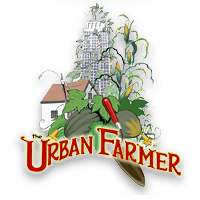Since the early 1990’s, Cuba has undertaken a fascinating journey of agricultural transformation.
With the collapse of the Eastern Block and the accelerated US sponsored economic blockade, Cuba was faced with massive food shortages and the loss of the fossil fuels and agro-chemical inputs which had driven their system of food production until that time. Drawing from the large pool of highly educated scientists and agronomists in the country, Cuba began to shape an alternative agricultural model based on ecological principles and organic methods.
"Permaculture is Practiced Here" sign on an organoponico in Sancti Spiritus, Cuba.
“This is one trip that you cannot plan for yourself. Ron’s relationships in Cuba opened doors (and farms) for us that we would never have discovered or been able to access on our own. We will be forever grateful for this privileged experience of Cuba.”
A package of land reforms dismantled many of the large state farms and turned them into worker run cooperatives. Family units were able to secure small land holdings for their own intensive farming operations. Unused land in urban areas was made available to enterprising urban farmers who transformed these spaces into highly productive “organoponicos” providing a significant proportion of the fruits and vegetables consumed in cities. Large scale recycling of organic wastes from rice and sugar processing and other industries through vermicomposting (worm composting) systems has generated and maintained soil fertility on otherwise unproductive lands. The reintroduction of animal power (oxen and horses) into the farm economy along with new experiments in organic pest control through the cultivation of beneficial biological organisms and on-farm biodiversity have reduced or eliminated the need for off-farm inputs.
Over the past two decades, Cuba has confronted a serious threat to their own food security. While Cubans continue to face many challenges, the acute crisis has passed and many valuable lessons have been learned. Some analysts believe that Cuba is now ahead of the curve in dealing with the threats to global food security that will confront us all in the years ahead. The loss of cheap fossil fuels and other agricultural inputs, severe climate events, loss of arable land, and a growing demand for limited global food resources are already beginning to put serious pressure on the global food system. Can we learn from the Cuban experience and begin to shift our own food systems towards low-input, ecologically based systems of production that get more people involved directly in growing food?
“This trip has changed my view of Cuba. The ideas, innovations, and resiliency that I have seen will definitely impact my views and I am motivated to try and incorporate some of the methods I observed in my own greenhouse operation. Thank you for pulling this together so well!”
Cubans are a resilient, passionate
and generous people.
While they would not wish the struggles they have faced on any other nation, they are happy and proud to share what they have learned with those who would like to walk with them. There are regular international conferences on organic agriculture and permaculture held in Cuba and the country has gained an international reputation as a leader in these fields. See the articles Organic Agriculture in Cuba - A Summary by Fernando Funes, and Si Se Puede - Visionary Farmers Fuel Cuba's Agro-Ecological Movement, by Ron Berezan.
Ron Berezan has traveled to Cuba many times and has developed a close working relationship with the Cuban Association of Agricultural Technicians and Foresters (ACTAF) and with the Antonio Nunez Jiminez Foundation for Nature and Man (FANJ). Both of these organizations are leading players in Cuba’s agroecological (organic) and permaculture movements and they are doing incredible work throughout the country building additional capacity in rural and urban areas.
Through the invitation of ACTAF and FANJ, Ron has lead numerous educational tours to Cuba which bring Canadians face-to-face with Cuban farmers, permaculture practitioners, activists and technicians. The Urban Farmer, in partnership with the University of Alberta, Faculty of Extension and FANJ, offers an annual 7-week permaculture internship opportunity in which a dozen Canadians learn from Cuban permaculture practitioners in the city of Sancti Spirtus and work with them in the design and development of new permaculture sites. Ron is also leading specialized programs in Cuba from Centennial College in Toronto and Brooks Secondary School in Powell River, British Columbia.
We continue to explore additional options for creating connections between Canadians and Cubans interested in food security and ecological approaches to growing food. Please contact us to explore options for joining one of our inspiring programs in Cuba or to work with us to create a unique program for your group or organization.
“I was so inspired by the ingenuity of the Cubans we met and how they keep innovating and improving their methods. They were so warm, welcoming and generous in sharing their food and their ideas. It was permaculture in action - what an education!”








